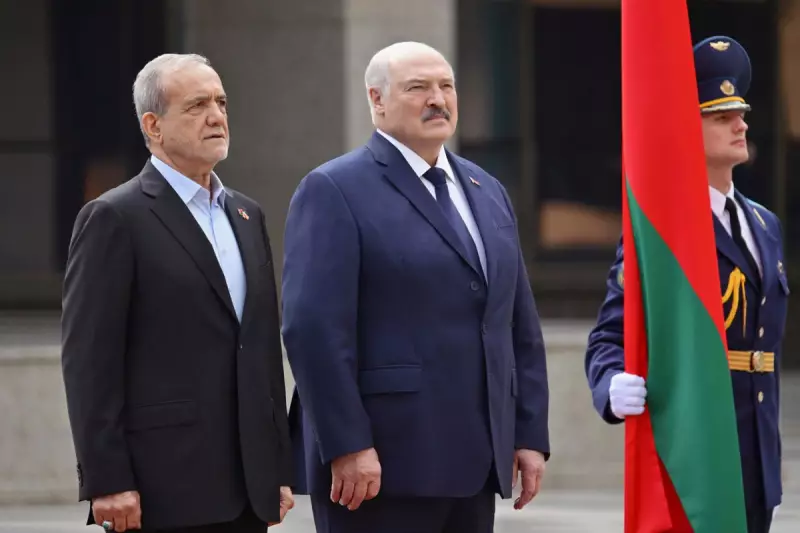
In a bold move that underscores a strategic pivot towards fellow pariah states, Belarusian President Alexander Lukashenko has concluded a significant two-day visit to Tehran. The trip, aimed at forging a united front against Western pressure, resulted in the signing of a comprehensive roadmap for future cooperation.
The beleaguered strongman, a key ally of Vladimir Putin, was received with full honours by Iranian President Ebrahim Raisi. The meeting between the two sanctioned leaders is being widely interpreted as an attempt to create an alternative axis of power, circumventing their international isolation.
A Meeting of Sanctioned Minds
The optics of the visit were telling. Lukashenko and Raisi, both presiding over economies crippled by extensive Western sanctions, framed their partnership as one of mutual necessity and defiance. "The Americans and their allies think that with the help of sanctions and pressure they can halt the development of our countries," Raisi declared during a joint press conference, positioning the alliance as a direct challenge to Western hegemony.
Lukashenko echoed this sentiment, emphasising a shared history of resistance. "We have been resisting Western pressure for decades. We have learned to work in these conditions, and even develop under these conditions," the Belarusian leader stated, portraying the sanctions not as a hindrance but as a catalyst for self-reliance.
Beyond Symbolism: The Search for Economic Lifelines
While the rhetoric was strong on symbolism, the visit had a concrete economic agenda. With traditional trade routes to Europe severed, Minsk is desperately seeking new markets and suppliers. The discussions reportedly focused on:
- Trade & Industry: Boosting bilateral trade, with a focus on Belarusian machinery and agricultural products.
- Transport & Logistics: Establishing new transport corridors to bypass sanctioned territories.
- Agriculture & Technology: Sharing expertise in agricultural science and potentially collaborating on technology projects.
- Banking: Navigating the complex challenges of conducting financial transactions outside the SWIFT system.
This economic courtship is a survival tactic for Lukashenko's regime, which has been financially bled dry by sanctions imposed following the brutal crackdown on 2020 pro-democracy protests and its complicity in Russia's war on Ukraine.
The Shadow of Moscow
Analysts were quick to note that Lukashenko's every move is watched closely by the Kremlin. His visit to Tehran, while promoting Belarusian interests, also serves Russia's broader geopolitical goal of building a coalition of states hostile to the West. Lukashenko’s role appears to be that of a loyal lieutenant, expanding Moscow's influence while securing his own regime's longevity.
The deepening Minsk-Tehran relationship raises significant concerns in Western capitals. Enhanced cooperation could potentially facilitate sanctions evasion on a larger scale and lead to more advanced technological and military exchanges, further destabilising an already volatile international landscape.





